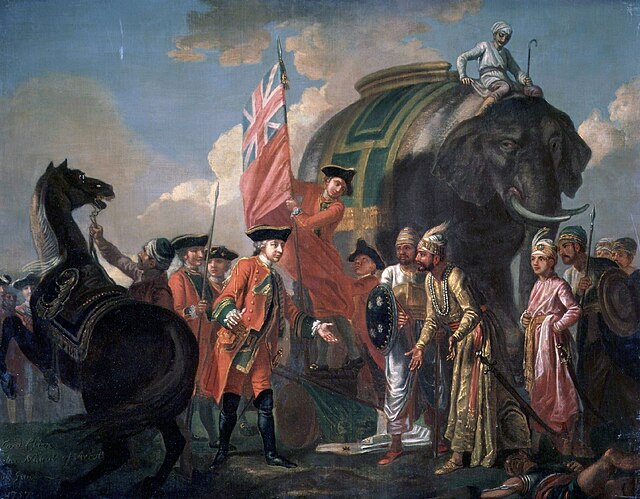Capitalism is an economic system based on the private ownership of the means of production and their operation for profit. Central characteristics of capitalism include capital accumulation, competitive markets, price systems, private property, property rights recognition, voluntary exchange, and wage labor. In a market economy, decision-making and investments are determined by owners of wealth, property, or ability to maneuver capital or production ability in capital and financial markets—whereas prices and the distribution of goods and services are mainly determined by competition in goods and services markets.
Cosimo de' Medici (pictured in a 16th century portrait by Pontormo) built an international financial empire and was one of the first Medici bankers.
Augsburg, the centre of early capitalism
A painting of a French seaport from 1638 at the height of mercantilism
Robert Clive with the Nawabs of Bengal after the Battle of Plassey which began the British rule in India
An economic system, or economic order, is a system of production, resource allocation and distribution of goods and services within a society. It includes the combination of the various institutions, agencies, entities, decision-making processes, and patterns of consumption that comprise the economic structure of a given community.
Albert Einstein advocated for a socialist planned economy with his 1949 article "Why Socialism?"
Circulation model of economic flows for a closed market economy. In this model the use of natural resources and the generation of waste (like greenhouse gases) is not included.






